20 greatest Austin bands of all time
Another list? C'mon Dorothy, you know you love 'em!
1. Willie Nelson and Family. A brother and sister who’d been playing together for over 80 years. Mickey on lonesome harp. The classics- one after the other, in virtually all styles of American music. And it’s a family, so no one had to think up the name. Bobbie Nelson, Bee Spears and Paul English were irreplaceable, and yet the show goes “On the Road Again,” because what could be a better life than making music with your friends? After moving here from Nashville in 1972, Willie Nelson and his band established Austin as a town where songs meant more than the money and fame. Though they would not be refused.
2. Spoon. If we were to rank the Greatest Austin LPs (and we will!) Britt Daniel, Jim Eno, and whoever they picked up from the indie rock Home Depot, would have at least five on the list. When you listen to the near-perfect 2001-2007 streak of Girls Can Tell, Kill the Moonlight, Gimme Fiction, and Ga Ga Ga Ga Ga all in a row, you can make a case for Spoon at #1. Especially since their most recent LP Lucifer on a Sofa is just as good. Fabulous Thunderbirds (“Tuff Enuff”), Timbuk 3 (“The Future’s So Bright”) and Fastball (“The Way”) have had bigger hits, but no group born in the beer dispensaries of this college town has produced a greater body of work.
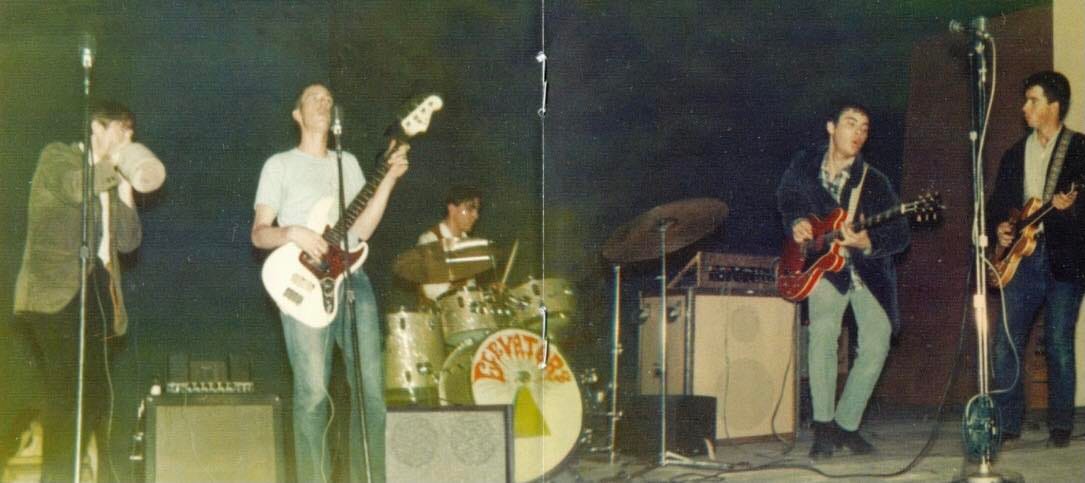
3. 13th Floor Elevators. Taking a song that a teenaged Roky Erickson first recorded with the Spades, the Elevators personified psychedelic garage rock in 1966 with “You’re Gonna Miss Me,” which remains the most Austin anthem. With sound coming in waves thanks to Stacy Sutherland’s guitar, the band’s 1967 follow-up LP Easter Everywhere resonates deeper than The Psychedelic Sounds of… debut. But just two years later they had broken up for good amid drug-fueled mental problems. Their time was shortlived, but there’s no denying that Roky and the Elevators planted the flag on the Austin club scene. When they finally made it to San Francisco in Sept. ‘66 they blew away bands like Big Brother and the Grateful Dead, who couldn’t believe you could play a show while on LSD.
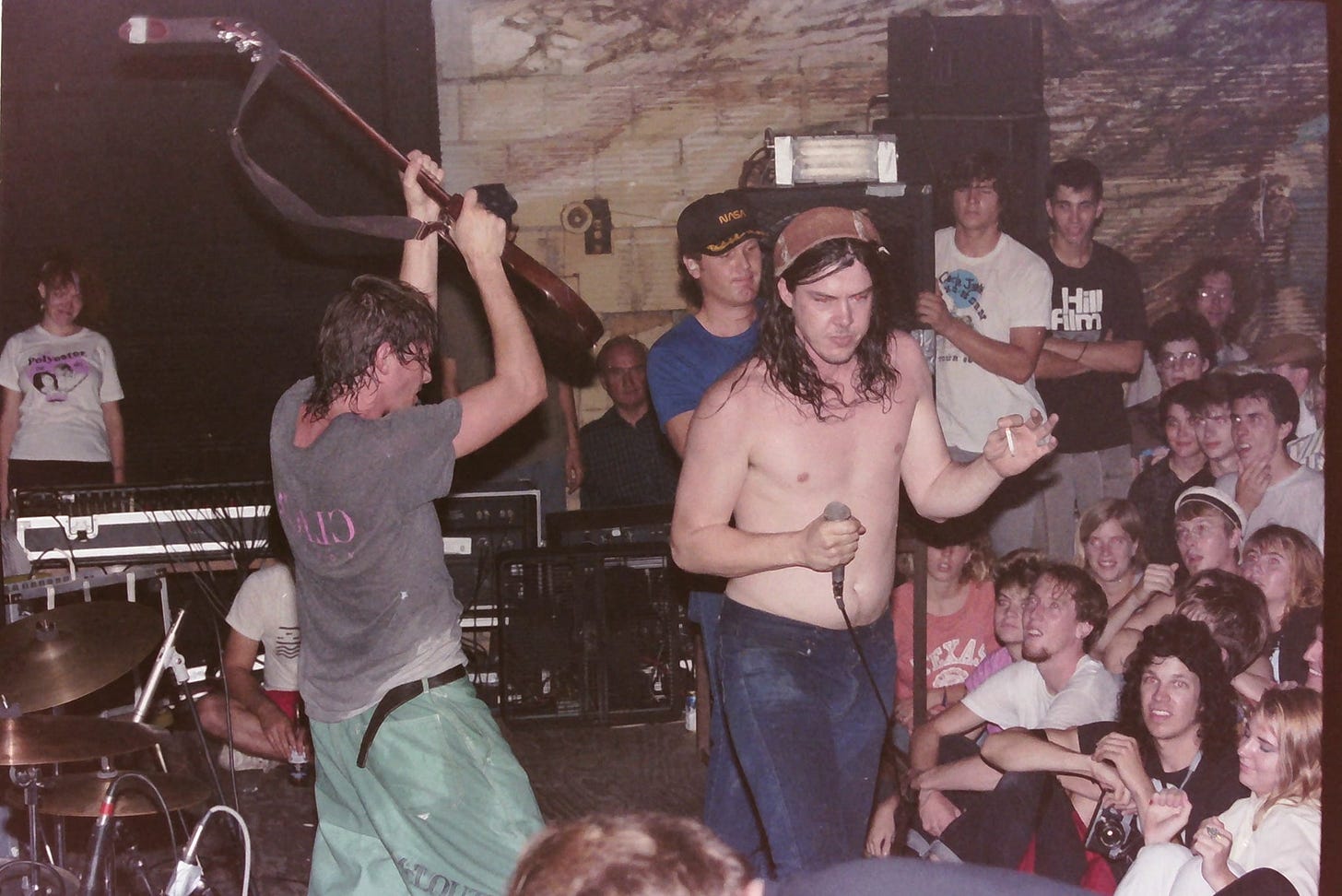
4. Butthole Surfers. The Austin music experience is personal. New York had Sonic Youth. Chicago had Big Black. Throbbing Gristle came from somewhere. Texas was represented by the Butthole Surfers, who were not only artful noise sculptors, but crazed characters who seemed plucked from a chainsaw massacre movie. They gave fans glorious dementia with cheap effects- projecting drivers’ ed flicks and ripping apart teddy bears in front of strobe lights, for instance- making them the coolest road warriors across the land. Led by Gibby Haynes and Paul Leary, a psych ward version of Jagger-Richards, they also managed to record the post punk classics Rembrandt Pussyhorse and Locust Abortion Technician in ‘86 and ‘87, which couldn’t be diminished by the mainstream popularity of “Pepper,” the band’s “Hail Mary” heave in the mid-‘90s that radio caught. John Waters made films about societal decay and Devo was formed around the concept of de-evolution, but the Butthole Surfers made such notions real and in your face with their sound of things being put together against their will. They’d be absolutely terrifying if it wasn’t for those drums.
5. Stevie Ray Vaughan and Double Trouble. In April 1983, the iconic bluesman Muddy Waters, who almost singlehandedly kept the genre thriving in the 1970s, passed on. Two months later, Stevie Ray Vaughan and his rhythm section of Chris “Whipper” Layton and Tommy Shannon, released Texas Flood on CBS Records and the torch was passed. Dressed like he’d been locked in a New Mexico truck stop boutique overnight, Vaughan and his battered brown Stratocaster introduced blues to the rock crowd and made the road more charitable to his idols, including Albert King and Buddy Guy. After giving up drugs and alcohol in 1986, Vaughan helped other musicians, such as Bonnie Raitt and Ray Wylie Hubbard, get sober by doing his best work. The 1989 LP In Step, with its centerpiece “Crossfire,” was fueled by spirituality instead of cocaine. It would be Stevie and DT’s final studio album, as tragedy came in a helicopter crash after a concert in August 1990. There’s never been a sadder day for Austin music fans.
6. Big Boys. After Raul’s on the Drag ditched Tejano for punk in early ‘78, Austin was home to a brave new music scene. But no band expanded the boundaries of punk rock like the Big Boys, whose early single “Fun Fun Fun” in the Sex Pistols vein led the way to a more varied sound, especially with the interjection of funk music. This was long before Red Hot Chili Peppers and the like. Nobody was mixing punk and funk, thought to be musical opposites, and the Big Boys took it further by bringing in Trouble Funk as their showmates at Club Foot. With singer Biscuit and bassist Chris Gates as the titlemen of the group, which included hillbilly scientist Tim Kerr on guitar and hard hitting Rey Washam on drums, the Big Boys concerts were gloriously chaotic (as when they incited a riot at the 1982 Austin Music Awards), but also powerfully musical. Kerr and Gates would go on to form the influential Poison 13, and Washam was the beat behind Cobain fave Scratch Acid, two pre-grunge bands who also deserve a spot on this list.
7. Joe Ely Band. There are two sides to this Lubbock-raised songster- the pensive writer and the raging showman. To get to the second side he’s needed a kickass guitarist and Joe has had two of the best- Jesse “Guitar” Taylor during his late ‘70s/ early ‘80s glory years touring with the Clash, and David Grissom in the mid-‘80s, when Ely’s pile-clearing live shows cemented his repute as the Springsteen of Texas. There are no surprises at an Ely show. Surprises are overrated.
8. Fabulous Thunderbirds. Electric blues started in Texas with T-Bone Walker and settled in Chicago in the 1950’s, but the T-Birds, featuring Kim Wilson on harp and vox, Jimmie Vaughan on guitar, Keith Ferguson on bass and Mike Buck, then Fran Christina on drums, brought it back home. Before SXSW, before ACL Fest, there was the T-Bird Riverfest, a gathering of 10,000 at Auditorium Shores that started getting especially crazy when the FabBirds hit gold with the Tuff Enuff album in 1986. But they came up right, playing in back of the masters at Antone’s on Sixth Street and soaking up every bit of bluesology they could. Jimmie Vaughan left the group in 1990 to make Family Style with younger brother Stevie Ray, and the T-Birds haven’t been quite the same since. But for a good 15 years they ruled the Texas blues scene.
9. True Believers/ Buick MacKane. With wide open booking policies at such ‘80s clubs as the Beach, the Mark/J-Net Continental Club, Hole In the Wall and Liberty Lunch, there were suddenly all these college radio guitar bands in town. But none packed a force like Alejandro Escovedo’s gang, with his brother Javier and Jon Dee Graham making for a formidable electric guitar trio. The Troobs invented the “glamericana” sub-genre by worshipping both the Velvet Underground and Johnny Cash, but their value had little to do with originality and songwriting and everything to do with sheer power. A good Troobs show would pin you to the wall. A great one would make you forget your name. Alejandro has become something more as a solo act, but when he wanted to revisit the ‘80s he’d book a show as Buick MacKane, featuring the great rock guitarist Joe Eddy Hines. If you ever saw them at the Hole in the Wall, that was your best night ever.
10. The Gourds/Shinyribs. The closest Austin’s ever come to producing its version of The Band, the Gourds grew out of Dallas punk band Picket Line Coyotes. The change in musical direction came when co-founder Kevin Russell started discovering ancient roots music captured by a father and son from UT. At the same time, PLC bassist Jimmy Smith started making his own weird musics as if he was an undiscovered primitive. The Gourd’s 1995 debut Dem’s Good Beeble set a high standard, but the band was merely bubbling under until they recorded a mandolin-driven version of Snoop Dogg’s “Gin and Juice,” which is a YouTube million air. After the Gourds breakup in 2013, Russell went whole hog into Shinyribs, who’ve become THE showband of Gulf Coast party sounds.
11. Okkervil River. After college, a group of former New Hampshire prep school classmates moved to Austin in 1999 to start a band. Taking their name from a Russian short story, Okkervil River had humble ambitions: making a record that would be reviewed in the Austin Chronicle. But after 2005’s “Black Sheep Boy” established the band with the Pitchfork set and attracted such admirers as Lou Reed and Bruce Springsteen, this River was off and running. They were the first band to ever play the Highline Ballroom in New York City, where lone original member Will Sheff now lives. The band’s masterpiece is 2007’s The Stage Names, which brought “lit rock” headiness to glam rock riffs and became such an albatross of expectations that Sheff completely changed the way he wrote songs on the followup I Am Very Far. Okkervil is a rarity among Austin bands in that they were better known for their recordings than the live show, but the times I saw them, they were great. And their True Love Cast Out All Evil album with Roky Erickson was brilliant!
12. Zeitgeist/Reivers. The Lost Generation of Jangly Guitars was officially ushered in with the 1985 release of Translate Slowly. That Zeitgeist album was proudly Texan (covers of Willie's "Blue Eyes Crying in the Rain" and the instrumental "Hill Country Theme"), yet exotically powerful and artfully accessible. Talk about chemistry; the interplay between John Croslin's deadpan growl and Kim Longacre's angelic harmonies sounded like Lou Reed joined the Mamas and the Papas. This was a dynamic band of four individuals, including bassist Cindy Toth and drummer Garrett Williams, who swirled in song. But in the summer of ’87, the band lost nearly all its momentum when a Minnesota choral group claimed “Zeitgeist” (which means "spirit of the times") in a cease and desist letter. To avoid a lawsuit, Capitol wouldn't put out the next record, the Don Dixon-produced Saturday, until Austin's Zeitgeist found a new handle. I suggested Whitegeist, but they went with the Reivers, after the William Faulkner novel. Zeitgeist was such a perfect name.
13. Dolores and the Blue Bonnet Boys. During the ‘40s and ‘50s, Austin had its share of great country bands, including Jesse James and All the Boys, Grouchy and the Texas Pioneers and Buck Roberts and the Rhythmaires, but Dolores and the Blue Bonnet Boys stood out because it was that rare country band led by a woman who wasn’t the main vocalist. Far from a novelty, Dolores Fariss wrote songs, chose outside material, played piano and ruled her group of talented musicians like Bob Wills in a skirt. “Dolores and the Blue Bonnet Boys did more to teach me about music than anyone I’ve ever known,” Kenneth Threadgill said in 1970. And he’s known as the Father of Austin music!
14. Black Pumas. Psychedelic soul brothers, singer Eric Burton and guitarist/producer Adrian Quesada, were named Best New Band at the Austin Music Awards in 2019 and less than a year later were up for Best New Artist at the Grammys- what wha? They also sold out Stubb’s an unprecedented four nights in a row. But for all their success as a live band and streaming giants, Black Pumas haven’t sold many records. Their fan base is seemingly full of kids who grew up listening to that damn Shuggie Otis record their parents kept playing.
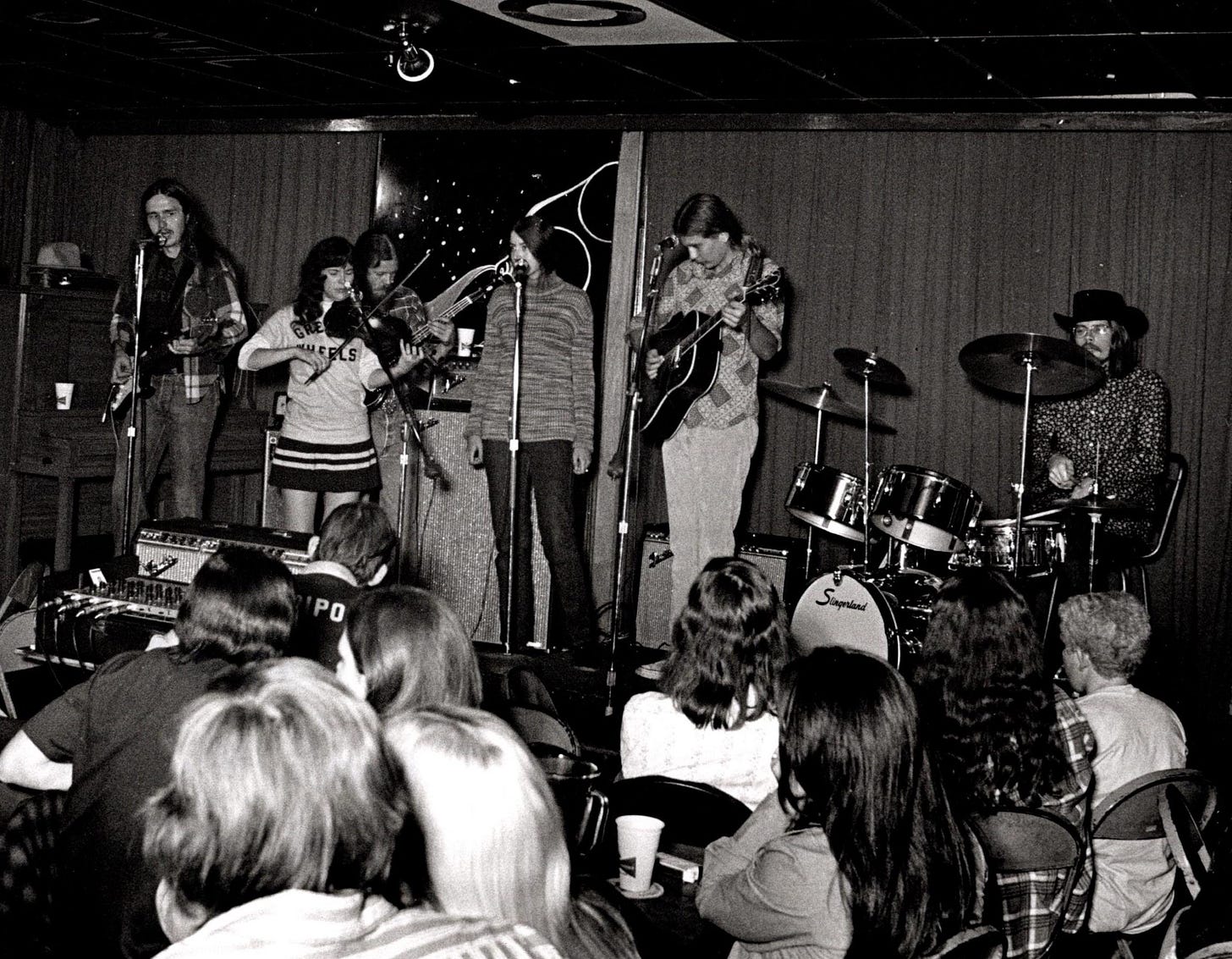
15. Greezy Wheels. We all know that the Armadillo World Headquarters was where hillbilly music and psychedelic rock came together to create the “progressive country” scene, but the true pioneers were Greezy Wheels, not Willie and Waylon et al. In fact, when Willie Nelson made his AWHQ debut in August 1972, Greezy Wheels were tapped to open so that there’d be a guaranteed crowd. Inspired to mix country/gospel/bluegrass/rock by the Whistler scene at Bonnie’s Place on East Sixth near Pedernales in the summer of ‘70, the Wheels were led by a trio of mad Hattersley’s- Cleve, wife Sweet Mary and sister Lissa, plus Pat Pankratz on guitar/vocals, Mike Pugh on bass, and drummer Tony Laier. With “Skiffle Group” added to their name in the wake of Mungo Jerry, they quickly learned 15 songs and debuted at the One Knite in late ‘70. When Cleve H. was sent to Huntsville for a year on marijuana charges, the Greezy ones added guitarist Tony Airoldi, who brought the band to new places on a 10-minute version of Willie Nelson’s “I Never Cared for You.” Signed to London, the home of ZZ Top, G.W. put out a couple albums that didn’t go much further than the city limits. Same ol’ story: great live band can’t capture and release.
16. Explosions In the Sky. Being originally from the Midland-Odessa area made this leaderless band of sonic brothers perfect for the Friday Night Lights movie, and let’s hope they also received royalties from the TV show theme, which copies their shimmering instrumental style. In over 20 years twinkling together, EITS has made a worldwide reputation for ebb-and-flow symphonies that transport the listener on an emotional journey. Their 2007 breakout album All of a Sudden I Miss Everyone is grandiose without pretension, which remains a trademark whether they’re playing on an Adidas commercial or some experimental film out of Israel.
17. Don Walser and the Pure Texas Band. The key word is “pure.” Austin is full of country music revivalists, but this town had never heard anything like Walser’s majestic country voice, as glorious and wide open as a West Texas horizon. When he started playing a beer joint on Burnet Road called Henry’s Bar & Grill in 1990, his yodeling brought out all the hairstyles, from mohawks to beehives. His band at the time sometimes included country legend Jimmy Day, who had backed both Elvis Presley and Hank Williams in the ‘50s. Discovered as a 56-year-old who worked for the Texas National Guard, Walser’s story was almost as amazing as his voice and he rated a segment on ABC’s “Primetime Live” in 1996. His greatest honor came three years later when, at age 65, the great yodeler made his debut on the Grand Ol’ Opry. He passed away in 2006.
18. Bells of Joy. Led by the Littlefield brothers, A.C. and Ester, the Bells came out of the Sweet Home Baptist Church back when Clarksville was a black neighborhood. In 1951, they were signed to Don Robey’s Peacock label and recorded the first-ever gold record by an Austin act- “Let’s Talk About Jesus.” Written by KVET DJ Lavada Durst, “Let’s Talk” added a drum beat to the quartet sound and profoundly influenced Ray Charles.
19. Ruben Ramos and Mexican Revolution. The suave “El Gato Negro,” as Ramos is nicknamed after his ‘80s Tejano hit, grew up in a musical family, playing drums in his uncle’s orchestra when he was just 12. In the late ‘60s he named his band The Mexican Revolution to show solidarity with the Chicano rights movement, and the music took on more political tones. But Ramos is best known for big band party music, keeping a live horn section and accordions when other outfits were switching to synthesizers to cut down on costs. Ramos celebrated 60 years in the music business by winning a Grammy in 2009 for best Tejano album. He’s remained a picture of class through the years and became known to younger fans when he was a member of Tex-Mex supergroup Los Super Seven.
20. (tie) The Dicks. Punk is full of posturing, but there was never a false note from Gary Floyd, Glen Taylor, Buxf Parrot and Pat Deason. They were the Stones to the Big Boys’ Beatles- a scruffier lot going deep inside the dirty bookstore of the mind. The great producer Glenn “Spot” Lockett, who helmed classic albums by Husker Du, the Minutemen, Black Flag and more, said his favorite production was the Dicks 1983 debut LP Kill from the Heart. It was also the last record from the original Texas lineup, with Floyd moving to San Francisco in search of new Dicks. Floyd had his greatest success with Sister Double Happiness.
20. Shiva’s Head Band. Austin’s first rock band to sign a major label contract (Capitol) in 1969, head Sheeve Spencer Perskin used some of that advance to open the Armadillo World Headquarters with the band’s manager Eddie Wilson. Shiva’s played the Dillo’s opening night, just as they had done at the Vulcan Gas Company three years earlier. They were one and done with Capitol, but carry the reputation as a wildly intuitive live band- with a crazy violin!
Where’s Doug Sahm? Though the groove hunter moved to Austin in 1973, his Sir Douglas Quintet was based out of his hometown of San Antonio. Same with Texas Tornados.
Hey, man, you forgot Balcones Fault! No I didn’t. Though these lists I do are based on research and experience, there’s also a degree of personal taste, and “comedic Dixieland jazz band” is on my fuck it list. This has been my third try at an authoritative greatest Austin bands list, and I’d say each one gets better with an appraisal adjustment. But these are never intended as fact. Just one man’s very studied opinion.
That said…

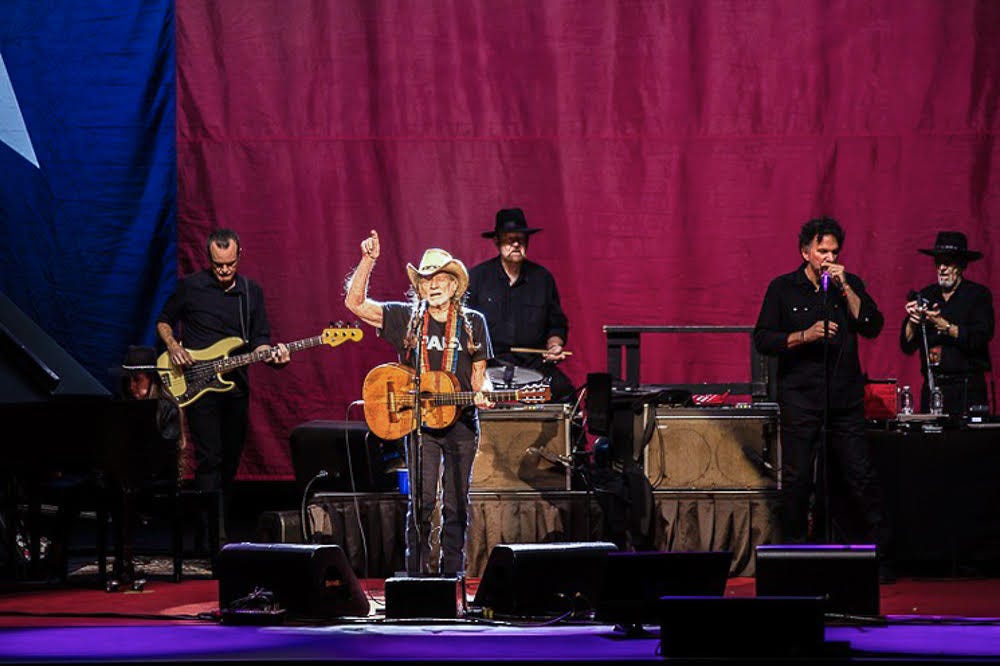
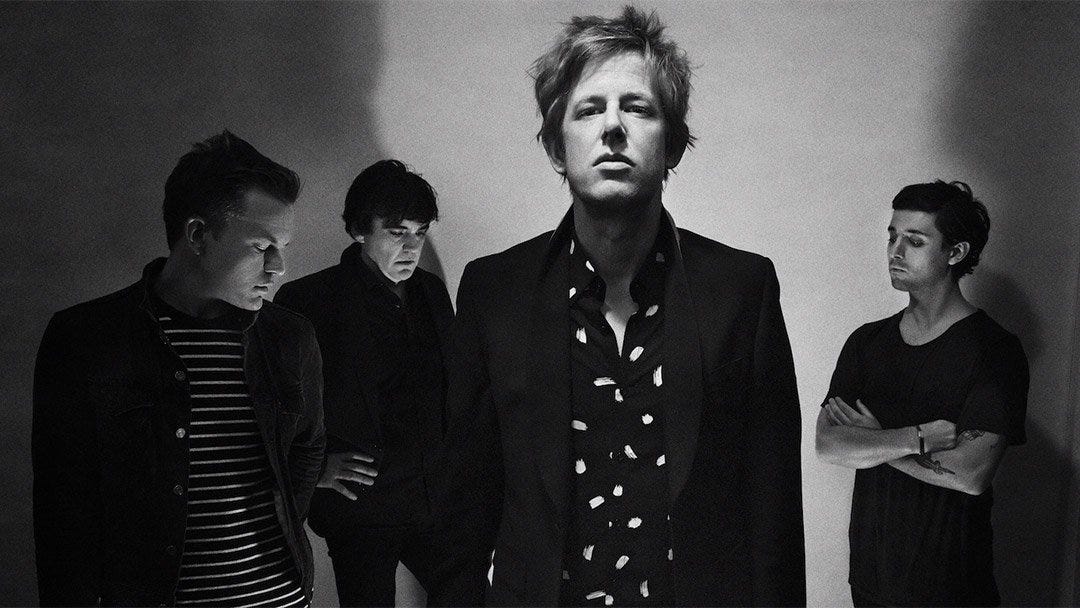
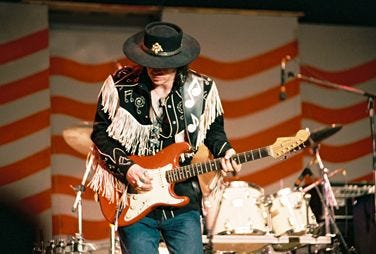


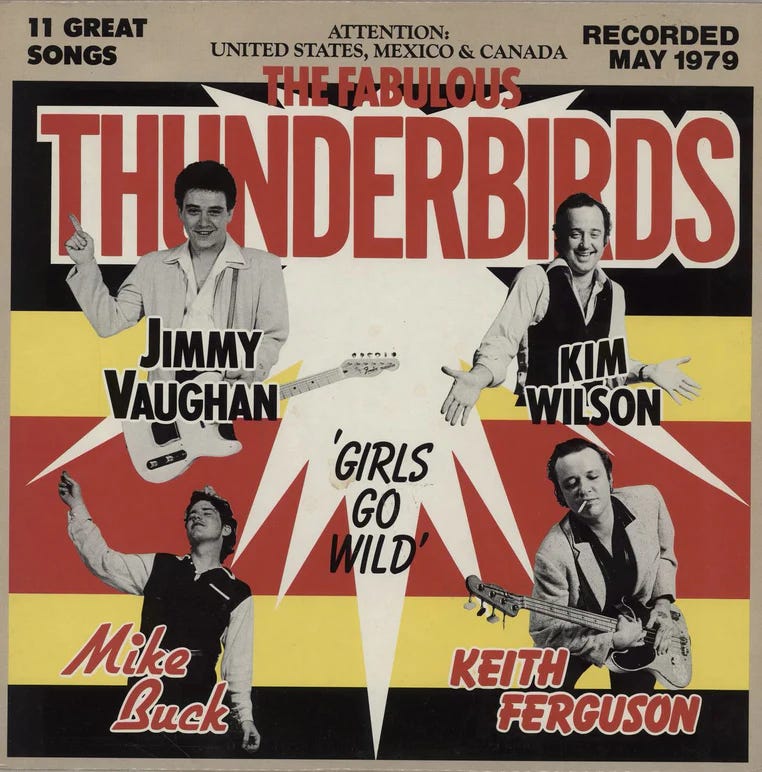
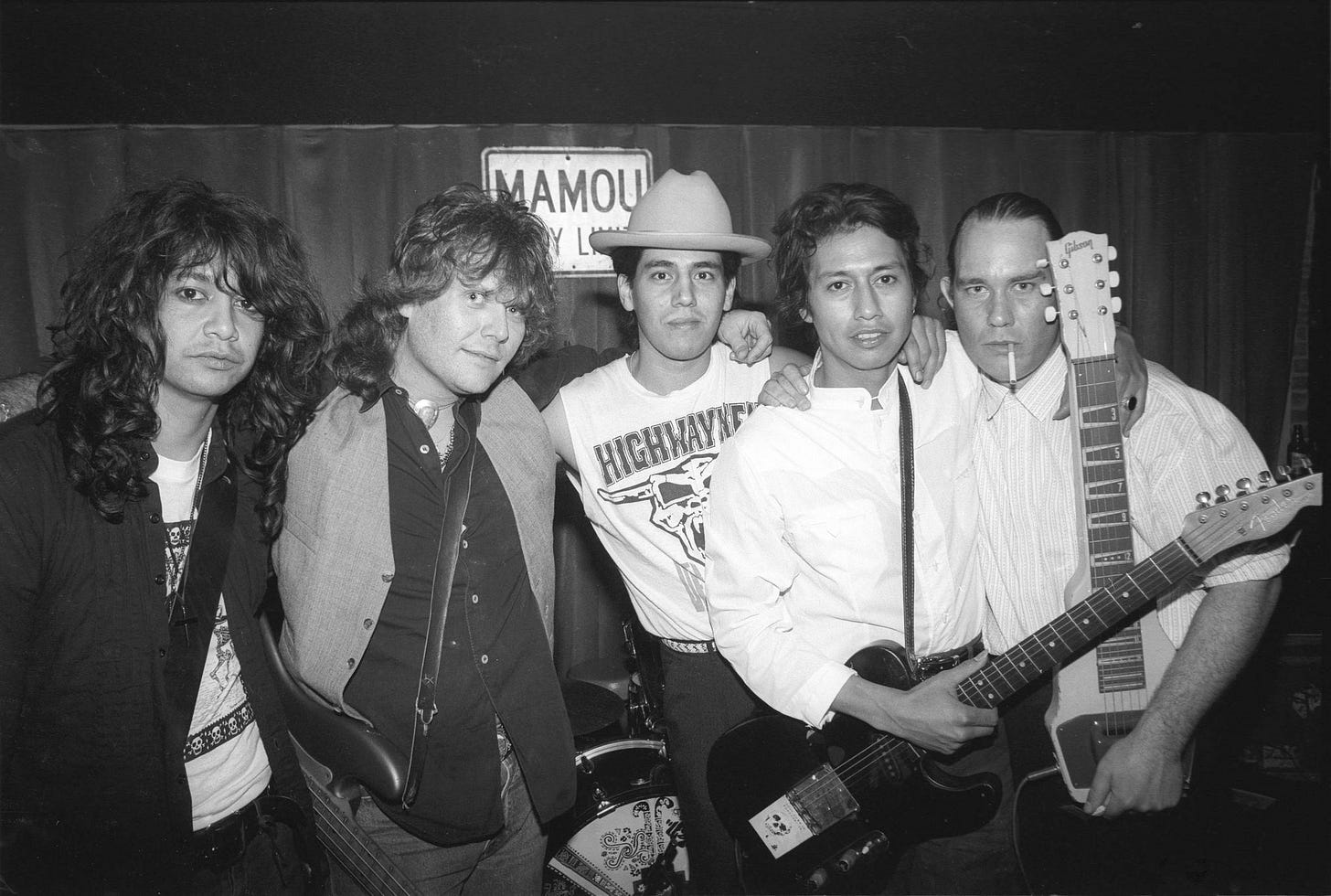
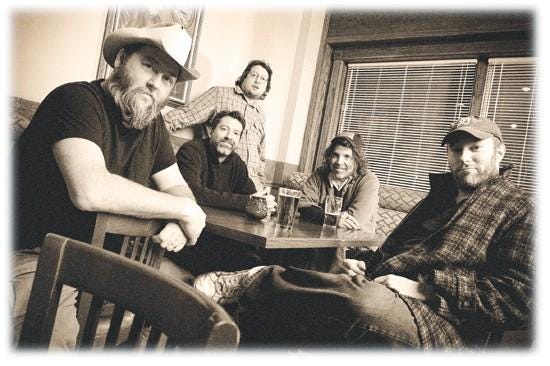
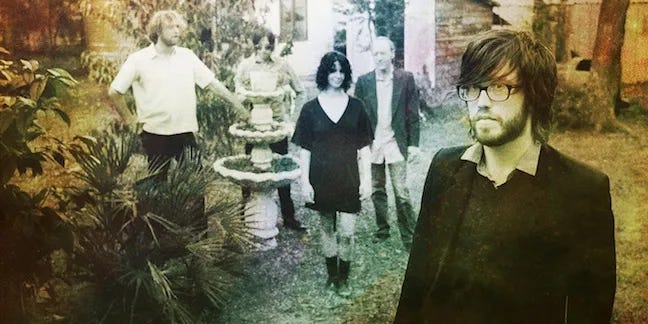
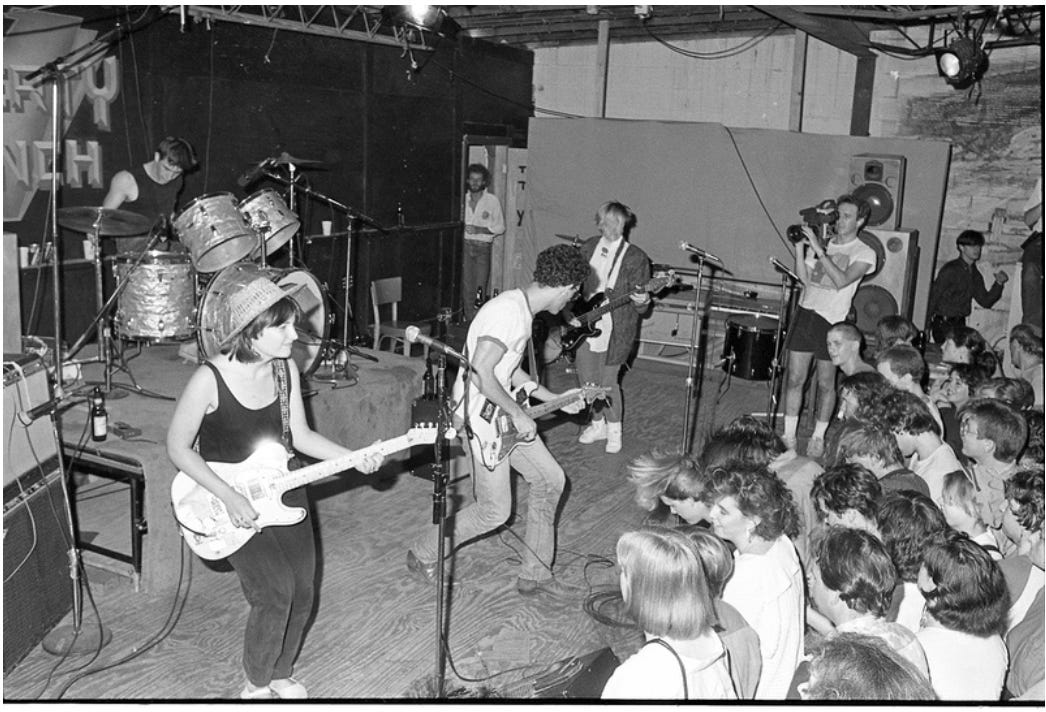
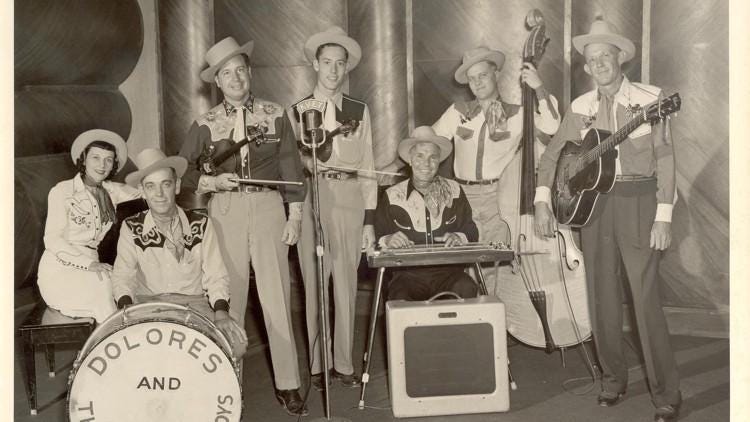
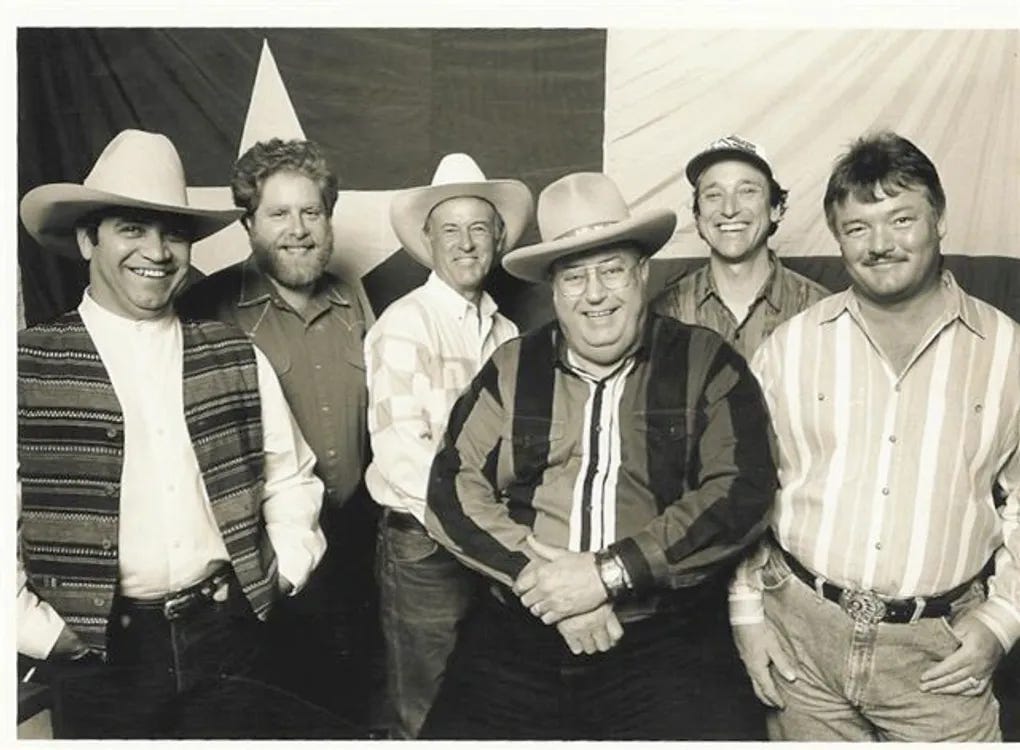
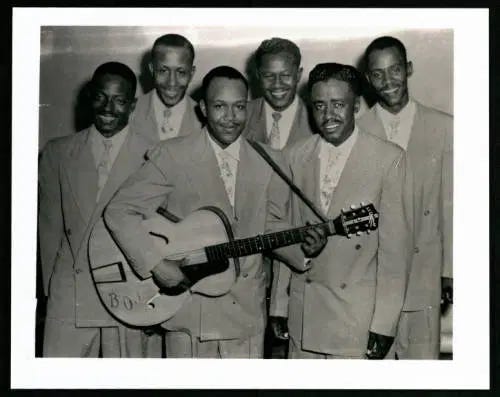
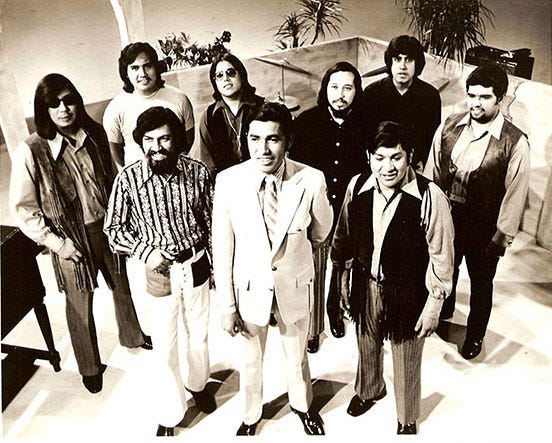

Bad Livers
The Elevators also deserve mention as being the first band I can recall that played original material almost exclusively and for playing LOUD. And has anyone else featured an electric jug? It's been almost sixty years but they remain the most exciting band I've ever seen.